International Animal Rights Day – No More Litter for Wildlife
In October, we shared the heartbreaking story of a juvenile koel that tragically succumbed after accidentally ingesting a long piece of string. On this International Animal Rights Day, we delve deeper into similar sad cases encountered by the Wild Animal Rescue Centre.
- Asian Koel and the Nylon String
One koel swallowed a long nylon string, which looped around its lower jaw, causing severe tissue damage and leaving deep, infected wounds down to the bone. A post-mortem examination revealed the koel had also ingested BB pellets, adding to its suffering.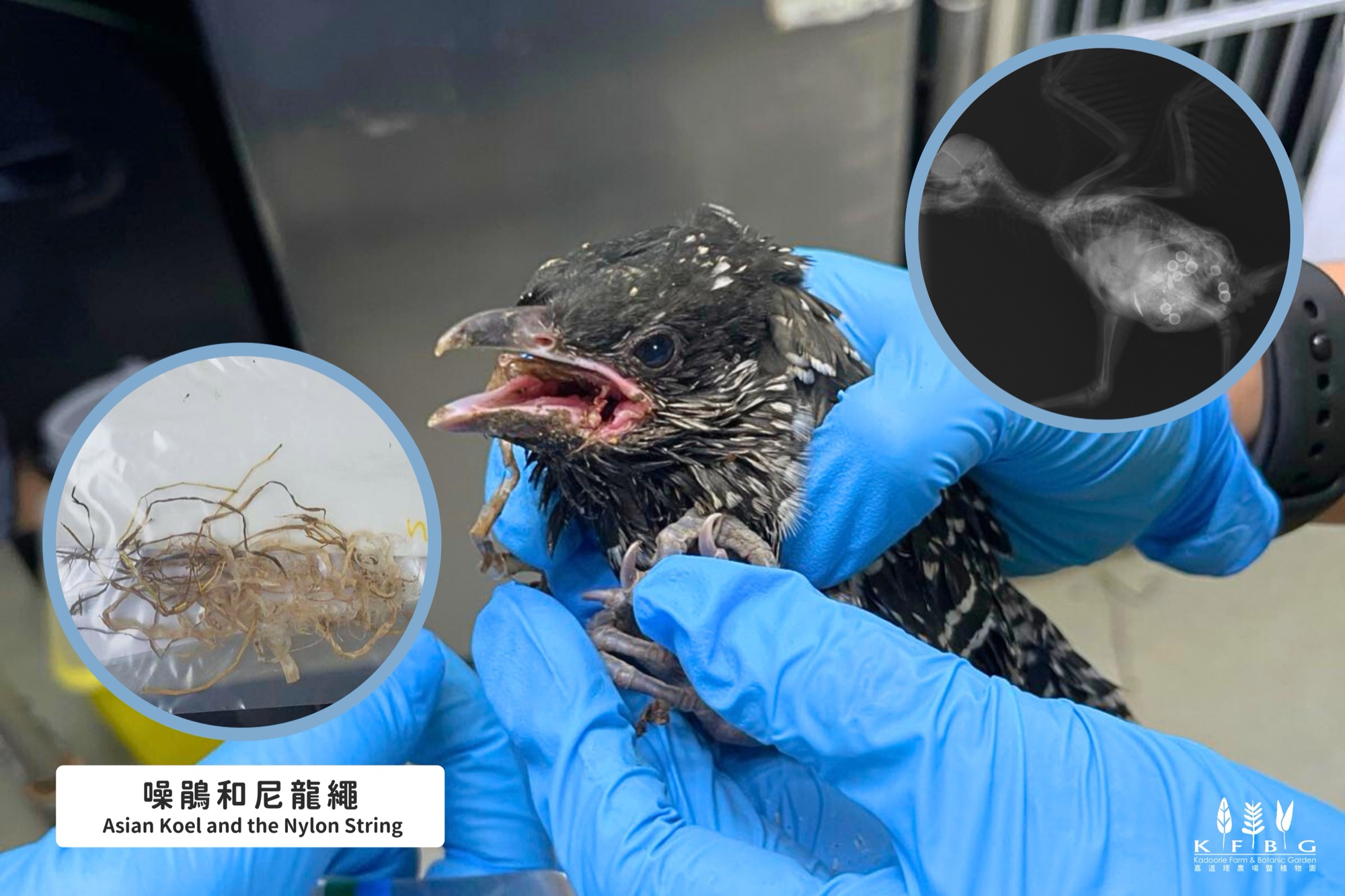
- Grey Heron and the Fishhook
A grey heron swallowed a fishhook that became lodged at the base of its heart, making surgery impossible. A post-mortem examination showed the fishhook had punctured the oesophagus, causing significant internal damage. An angular foreign body, a polystyrene fishing float, was also found in its stomach.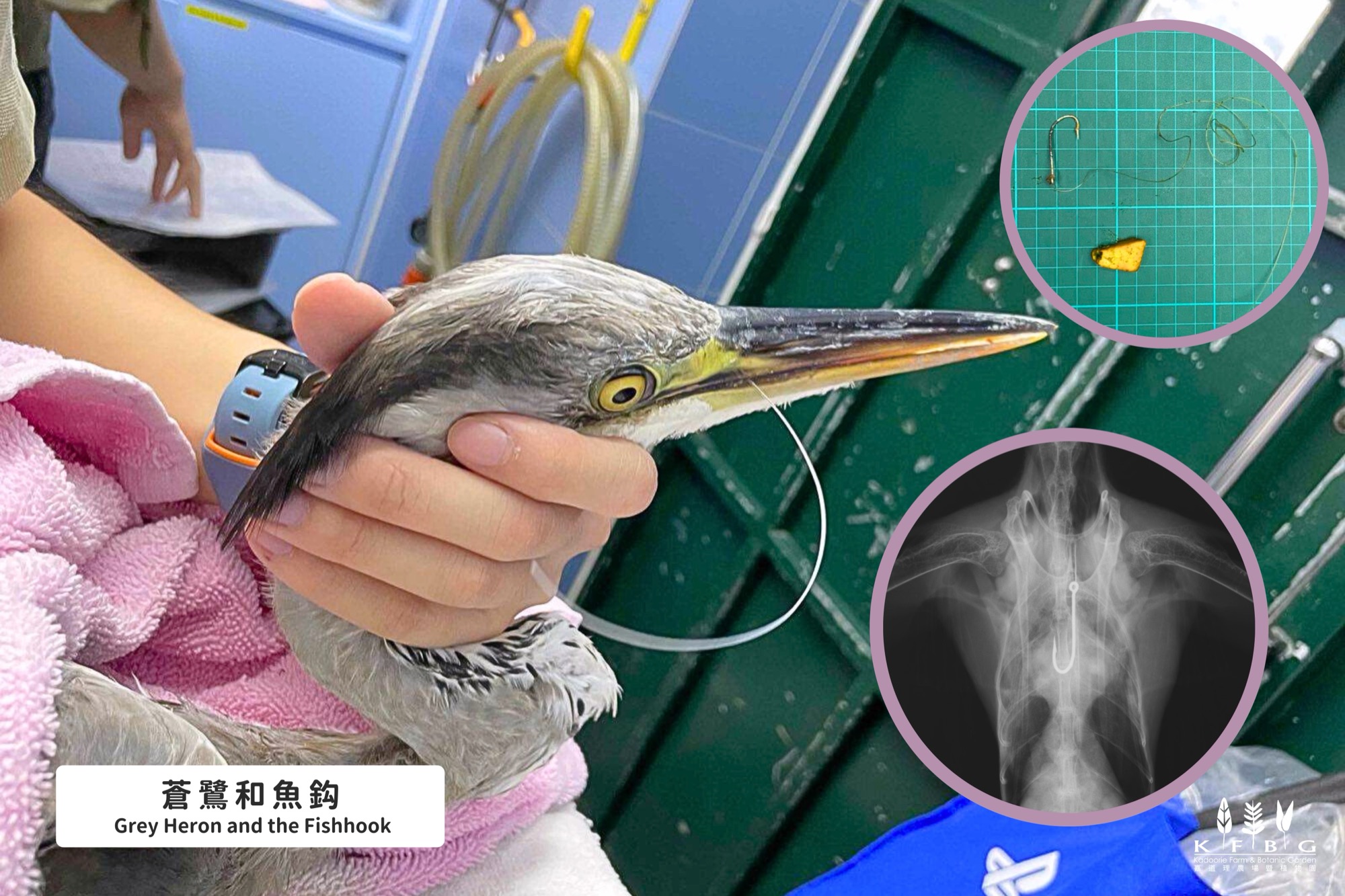
- Little Egret and the Fishhook
Similar to the heron, this little egret fell victim to a fishhook while preying on fish. It could not survive due to lesions and deep wounds caused by the fishing line, which hindered its ability to feed.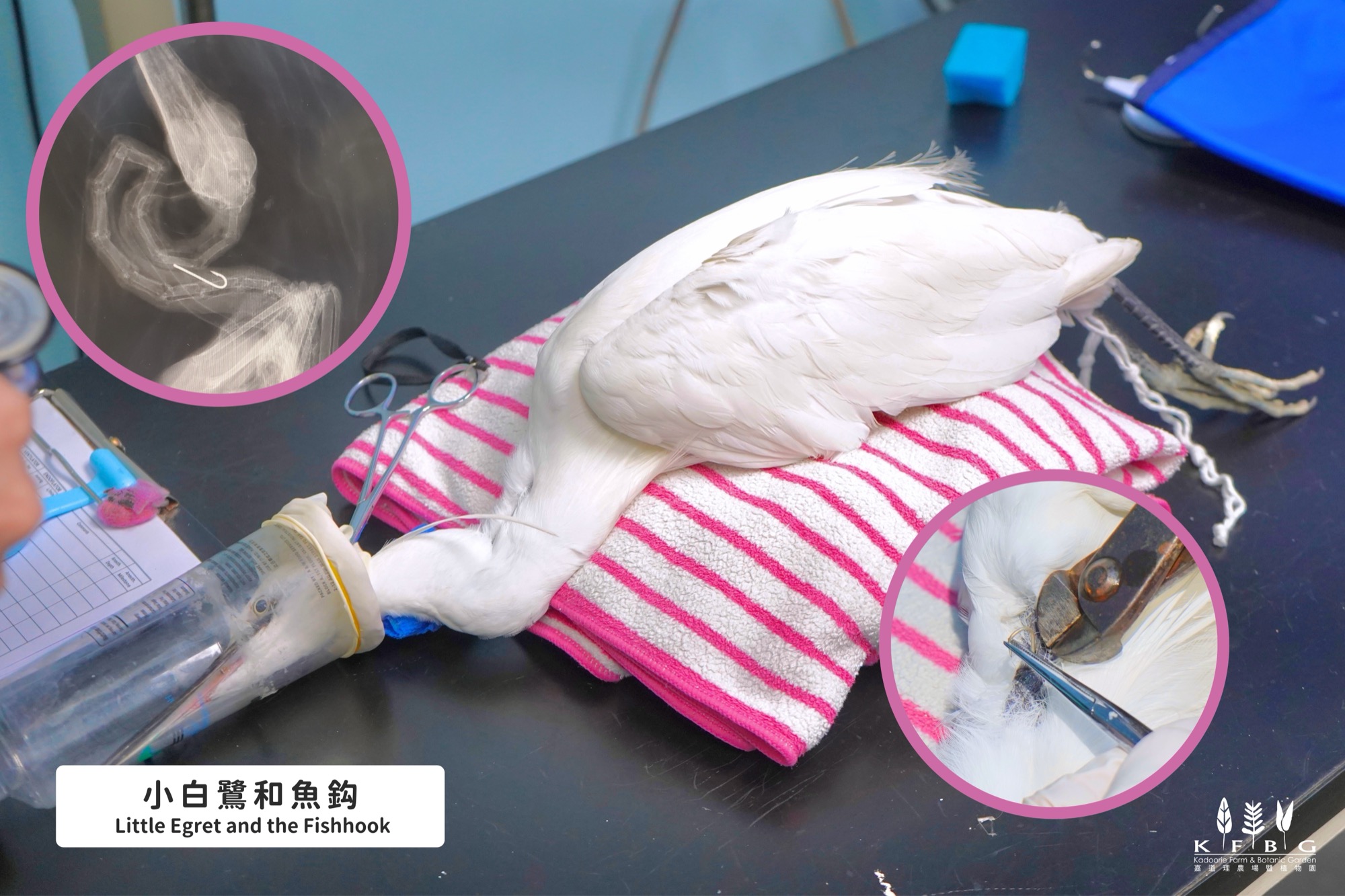
- White Wagtail in a Tangle
A white wagtail became severely tangled in threads, causing swollen and deformed feet. Its condition deteriorated, and unfortunately it did not survive.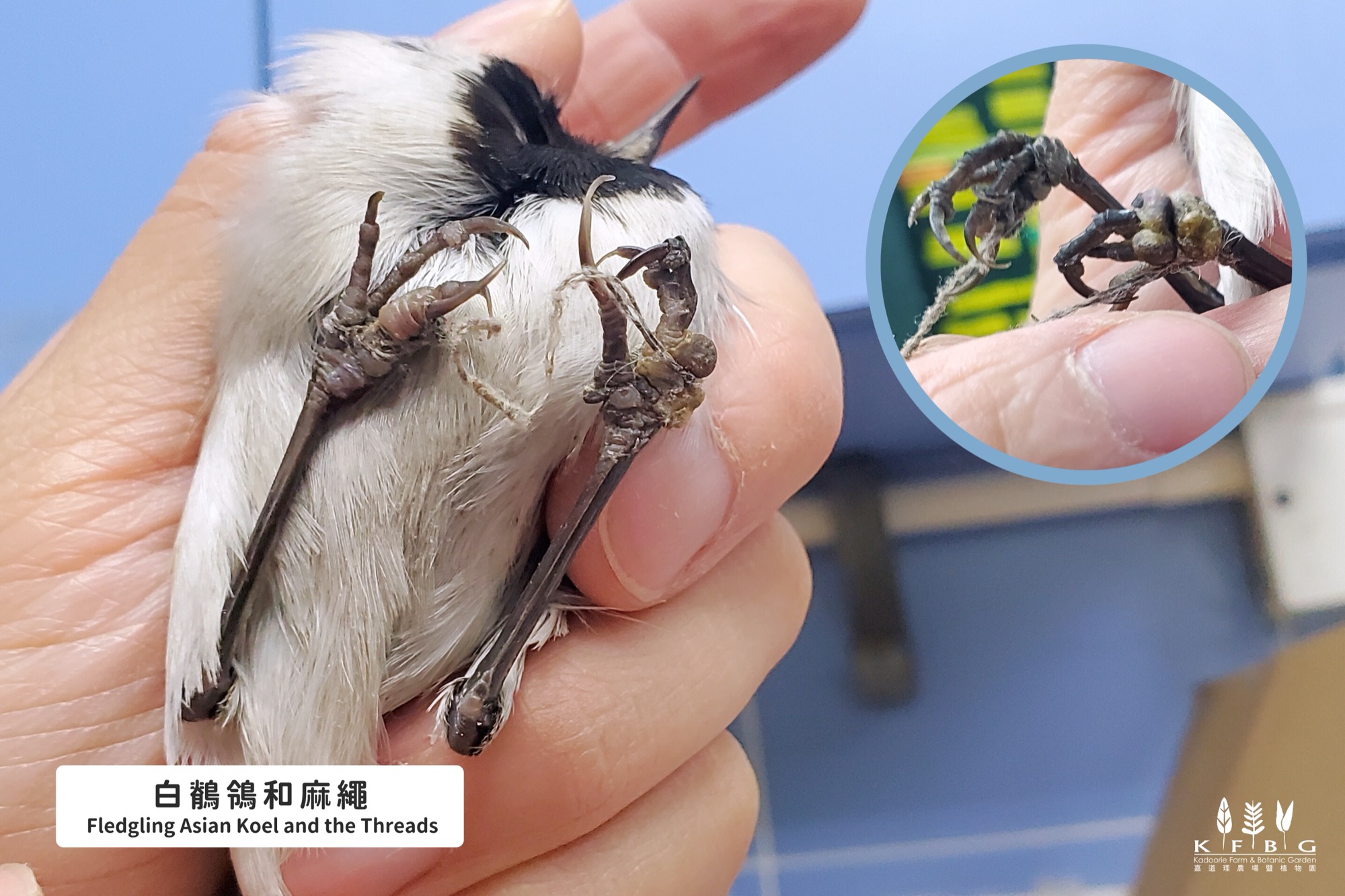
- Spotted Dove and Human Hair
Surprisingly, human hair can also be harmful to wildlife, tangling and causing fractures in young birds. This juvenile dove was sadly dead upon arrival.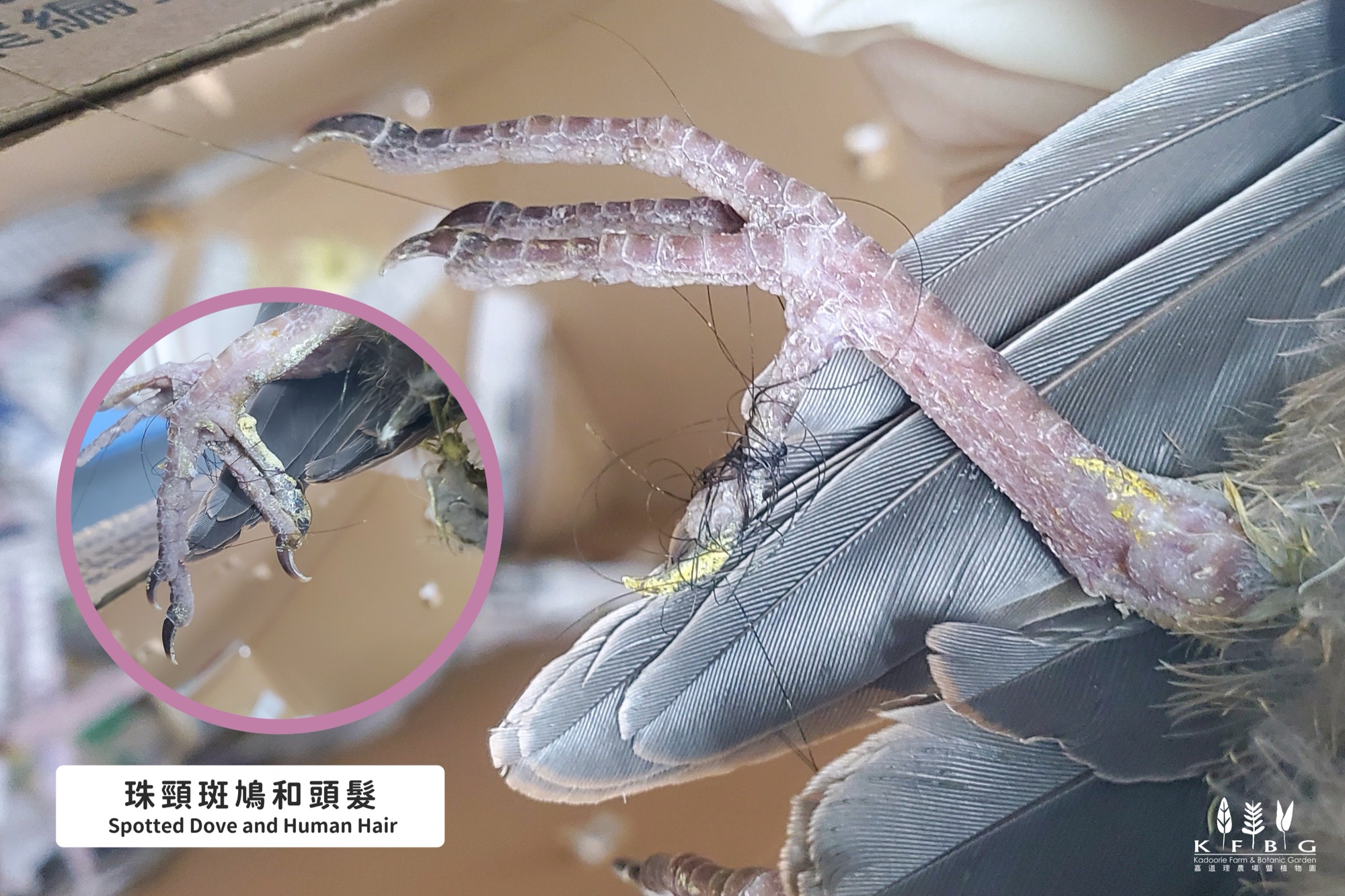
- Fledgling Asian Koel and the String
A fledgling koel was found with a string protruding from its mouth, which was removed along with half-digested food from its stomach. It is possible that a parent bird mistook the discarded thread for food, or the fledgling picked it up from the nest. Adult birds often use discarded human rubbish when building nests in urban areas. It was the only survivor among all the above cases.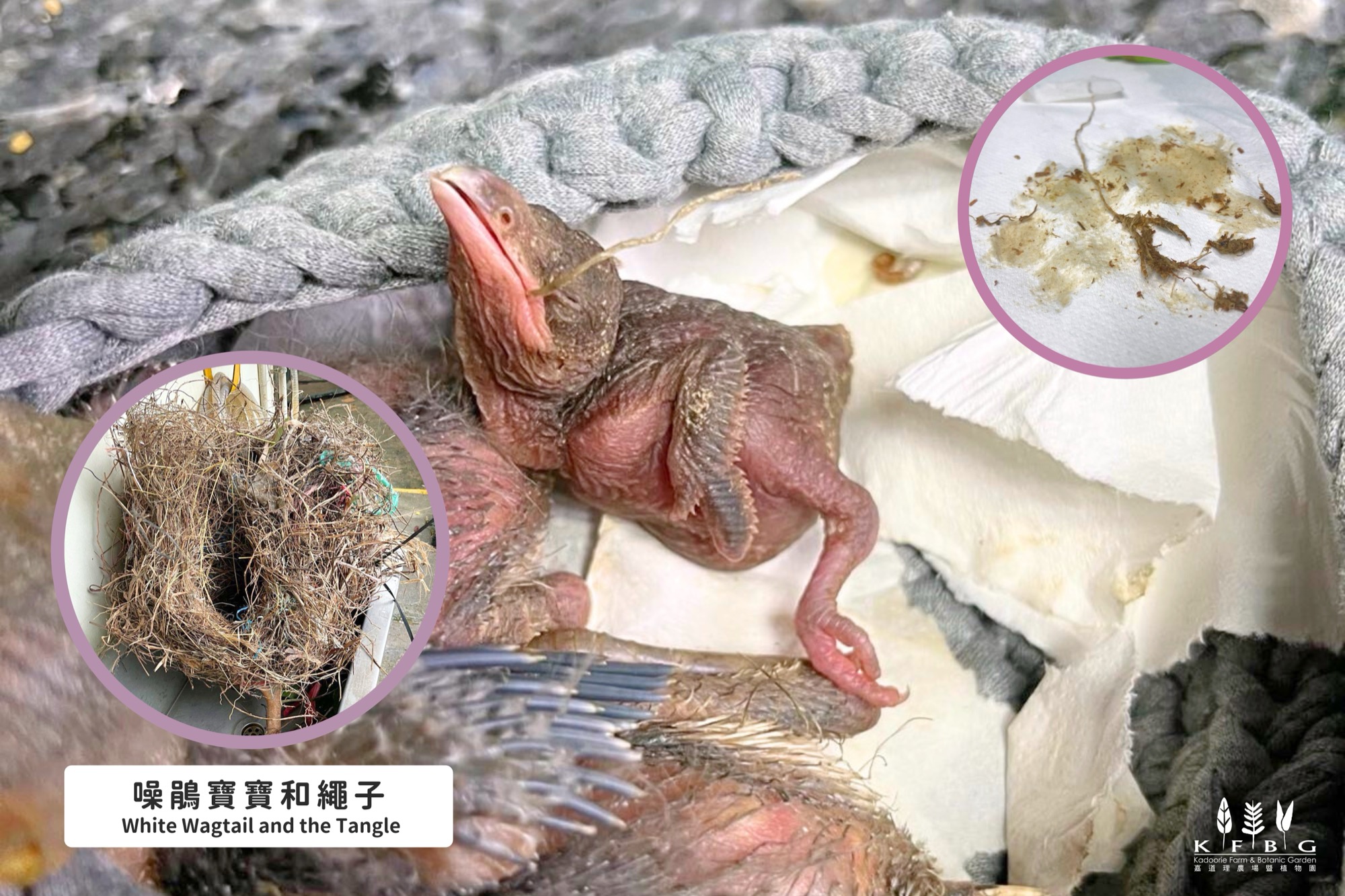
Animals may consume these objects out of curiosity or by mistaking them for food. The suffering can be prolonged, and items lodged in sensitive areas can cause severe internal damage, making surgery risky or impossible. Often, the full extent of the damage is only discovered on post-mortem examination. Sadder still is that the birds we see are only the tip of the iceberg: most litter victims won’t be noticed in the wild and won’t receive help.
The solution is straightforward: DO NOT DISCARD UNWANTED ITEMS — whether fishhooks, string, or plastic bags. This simple action benefits not only our native wildlife but also promotes a healthier community. Please share this message and help maintain a wildlife-friendly and cleaner environment for all!


